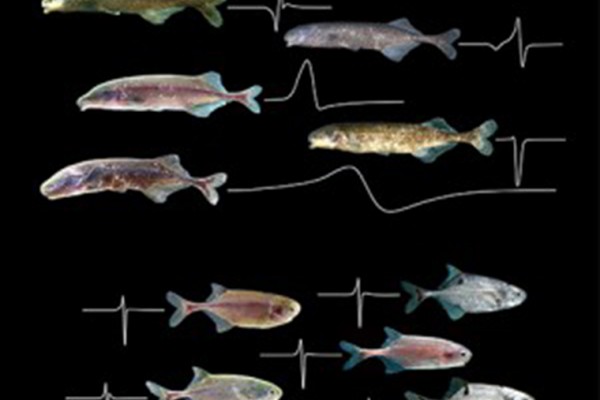Fish that have their own fish finders
African fish called mormyrids communicate by means of electric signals. Fish in one group can glean detailed information from a signal’s waveform, but fish in another group are insensitive to waveform variations. Research at Washington University in St. Louis has uncovered the neurological basis for this difference in perception.
Fish in ponds benefit flowering plants
Fish in ponds can be a flowering plant’s best friend, according to WUSTL ecologists.Fish and flowering plants would seem to have as much in common as pigs and beauty soap. But ecologists at Washington University in St. Louis and the University of Florida have found an amazing relationship between the different species that provides a new direction for understanding how ecosystems “hook up.” A team of researchers, headed by Tiffany Knight, Ph.D., Washington University assistant professor of biology in Arts & Sciences, has shown a correlation between the presence of fish in ponds and well-pollinated St. John’s wort (Hypericum fasciculatum, Hypericaceae) at a Florida research station.
Certain female fish have special mating preference
Male Bahamas mosquitofish (left) chasing a female (right).A biologist at Washington University in St. Louis has shown that for some fish species, females prefer males with larger sexual organs, and actually choose them for mating. That does not exclude males with an average-sized sex organ, called a gonopodium. These fish out-compete the larger-endowed males in a predator-laden environment because they have a faster burst speed than the males with larger genitalia, thus avoiding predators and staying in the mating game.
Certain female fish have special mating preference
Male Bahamas mosquitofish (left) chasing a female (right).A biologist at Washington University in St. Louis has shown that for some fish species, females prefer males with larger sexual organs, and actually choose them for mating. That does not exclude males with an average-sized sex organ, called a gonopodium. These fish out-compete the larger-endowed males in a predator-laden environment because they have a faster burst speed than the males with larger genitalia, thus avoiding predators and staying in the mating game.

